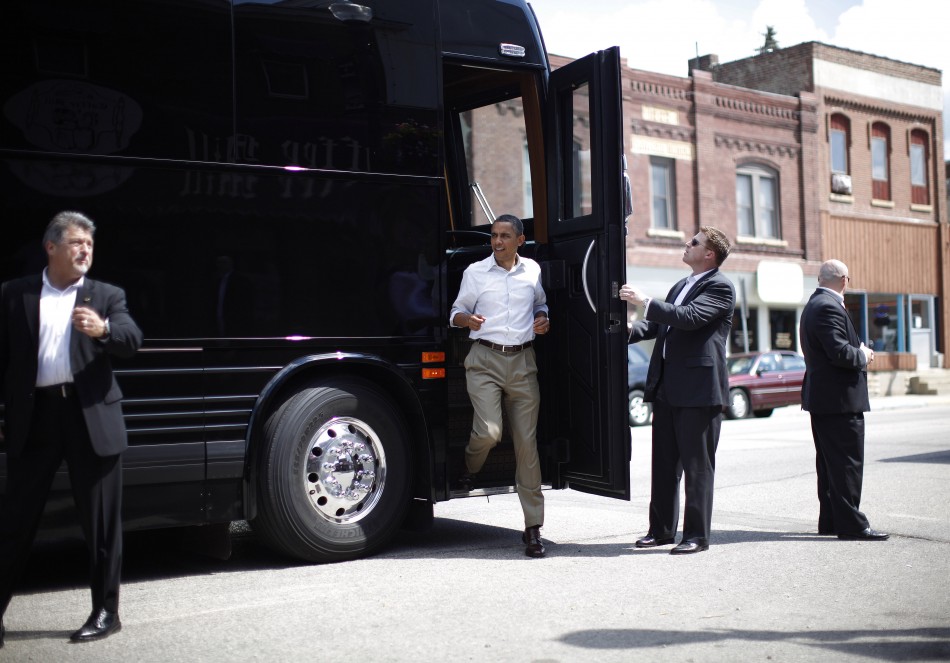While Barack Obama is keen to attack Mitt Romney for “outsourcing,” he ignores that his first job, at Business International Corporation (BIC), actually advised American firms on how best to outsource. Not only did Obama work for BIC, he actively seems to have chosen it. In fact, he worked for one of “the first research firms designed to provide information services for multinational firms,” wrote David Remnick in his sympathetic biography, The Bridge (p. 118).
“Obama was a researcher and writer for a reference service called Financing Foreign Operations,” Janny Scott for the New York Times reported in 2007. “He also wrote a newsletter, Business International Money Report.” The reports were written for senior management in large corporations and had titles like “Investing, Licensing, and Trading Conditions Abroad,” Beth Noymer Levine, a colleague, told NPR in July 9, 2008. It was, in other words, a report for corporations on how to invest and expand abroad–which is exactly what outsourcing is.
Remnick elaborates:
Obama worked in the financial-services division, interviewing business experts, researching trends in foreign exchange, following market developments. He also edited a reference guide on overseas markets…He wrote about currency swaps and leverage leases. (The currency swaps and derivatives that Obama covered for Business International Money Report were components of the financial engineering that led to the crash of 2008). Obama also helped write financial reports on Mexico and Brazil. (188)
Obama argued in 2008 that his role as a “financial analyst” for a year in 1985 made him able to deal with the economic downturn plaguing the nation. He was no financial genius, but he marketed himself as one anyway. In his “Born in Kenya” book proposal, Obama was listed as a “financial journalist and editor.” That was just one of many times Obama puffed up his Wall Street resume, according to Dan Armstrong, a colleague at BIC who savaged Obama’s account on his blog, analyzethis.net: “All of Barack’s embellishment serves a larger narrative purpose: to retell the story of the Christ’s temptation. The young, idealistic, would-be community organizer gets a nice suit, joins a consulting house, starts hanging out with investment bankers, and barely escapes moving into the big mansion with the white folk.” Suffice it say, Obama did not have a secretary or wear a suit or speak with Japanese or German bankers and financiers as he claimed in Dreams from My Father, his first memoir.
BIC was a “sweatshop,” as one colleague recalls, where office drones banged away on WANG computers and smoked cigarettes. Obama didn’t like the job. He told his mother that it was “working for the enemy” and wrote that his brief foray into business was like a “spy” “working behind enemy lines.” He especially disliked it because “some of the reports are written for commercial firms that want to invest in those countries,” his mother wrote to her boss. In so arguing, Obama echoed the view of Marxist “dependency theory,” an economic illiteracy which holds that Third World countries are impoverished by Western imperialists who steal their wealth. The theory was fashionable at the time, especially in left-wing circles and particularly at Columbia and Occidental Colleges.
At Oxy, Obama’s professor for Political Science 94, a foreign policy course, was Alan Egan, who argued that America was trying to “de-industrialize” his native Argentina. At Columbia, he took a seminar with Michael Baron, which studied in part foreign aid and the capital flows between first and third worlds. Obama seems to have imbibed this view, writing in Dreams: “I instructed my mother on the various ways that foreign donors and international development organizations like the one she was working for [the Ford Foundation] bred dependence in the Third World.”
Yet BIC was hardly the western imperialist that Obama portrayed it as in Dreams. In 1983, its “call for action” encouraged multinationals to push for lower corporate taxes in countries in which they operated and to reduce weapons spending to promote “peace through greater global understanding and economic integration.” Its chairman, Orville L. Freedman, a former secretary of agriculture under Kennedy and Johnson, wrote of “How starvation can be eliminated” for the Christian Science Monitor in February 23, 1982.
“[BIC’s owners] were boosters for multinationals and they thought globalism was the way we should be going,” said Susan Arterian Chang, another colleague from BIC. Good or bad, Obama, as president, has now made it more tempting for American business to go overseas. He is, once again, helping big companies outsource.

COMMENTS
Please let us know if you're having issues with commenting.